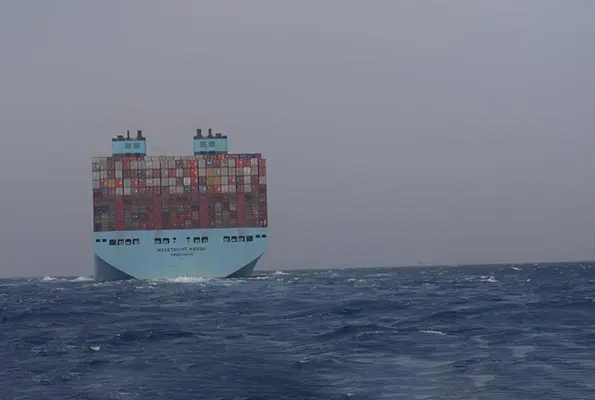The attacks made by the Yemen-based Houthi militia on Red Sea shipping can disrupt global supply chains, leading to higher inflation and prices for necessities like gas and oil. This can further cause issues for import-dependent African nations like Egypt, which has a significant trade deficit, as well as other nations like Ghana, Ethiopia, and Nigeria, which are already experiencing rising prices.
The Houthis stated in October 2023 that they supported Hamas in the latter’s Gaza conflict with Israel. Since then, they have carried out several attacks against Red Sea commerce, resulting in commercial shipping facing increased freight costs and delivery times. Although the gang has attacked numerous other vessels that have no connection to Israel, it is claiming to be assaulting ships connected to the Middle Eastern nation.
Many of the biggest freight corporations in the world, including MSC, Hapag-Lloyd, and Maersk, have rerouted their ships to avoid going via the Red Sea and Suez Canal as a result of the attacks.
This detour adds about 6,000 nautical miles to the voyage for ships sailing from Asia to Europe or North America and can cause delivery delays of up to one month.
Arne Lohmann Rasmussen, chief analyst and head of research at Global Risk Management, based in Copenhagen, said that the situation is being constantly monitored. Global Risk Management works with clients to manage risks related to energy prices.
Although he is hopeful that supply chains won’t be as severely impacted as they were in 2021—the year the Ever Given ship grounded in the Suez Canal, closing the trade route for six days—he is worried that increased freight expenses would result in higher pricing for goods and commodities in Africa and other regions.
“It remains to be seen if this will disrupt global supply chains similar to what happened with the Ever Given in 2021,” he said.
In 2021, though, the freight market was incredibly competitive because everyone was purchasing things rather than services due to the pandemic. As of January 2024, this is not the case; there is excess capacity for containers and freight. That being said, freight expenses continue to rise.
Given their proximity, North African countries are most likely to suffer significant consequences from the Red Sea strikes, and foreign investors have expressed concern that the tensions could worsen into a larger regional conflict.
Egypt will lose out on a significant portion of the transit fees, which are a vital source of foreign cash and provide little less than USD 750 million to its economy each month, as a result of cargo being diverted away from the Red Sea and Suez Canal.
This could deal a serious blow to an economy that is still struggling with high debt levels, a large current account deficit, high rates of inflation, and a weak currency.
Rasmussen claims that there might be some brief possibilities for African markets, even though trade is being redirected around the southern tip of Africa.
“We are in the bunker business, and some of our African operations are seeing a higher demand from vessels travelling south of Africa,” he noted.
Given the rising cost of shipping goods from Asia to Europe, one may also argue, from an economic perspective, that African manufacturers are now more competitive than Asian producers.



